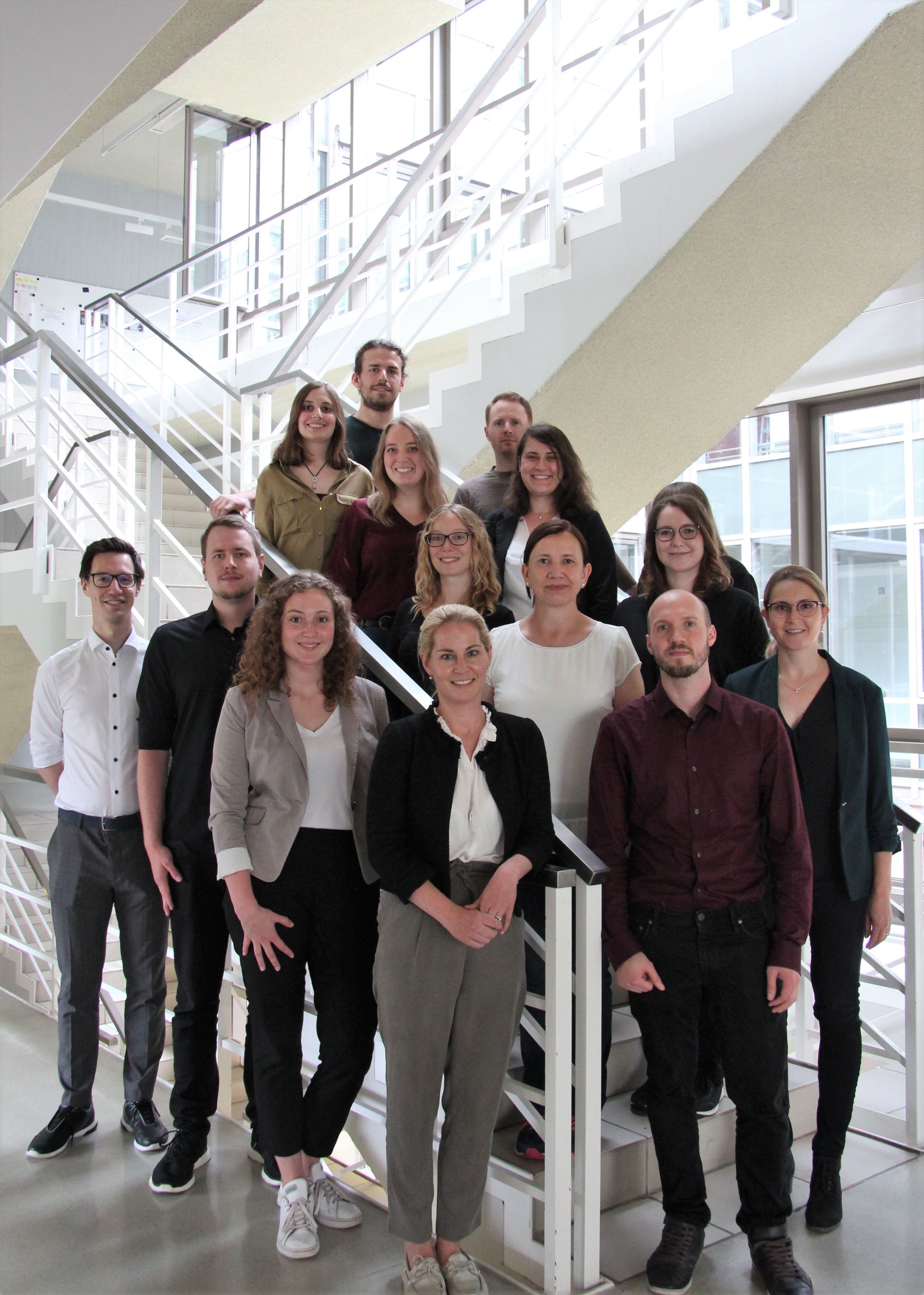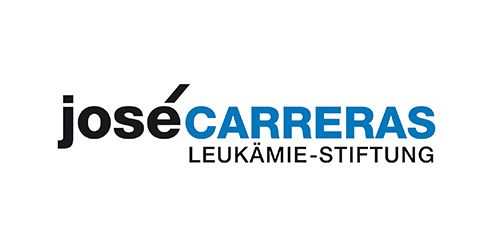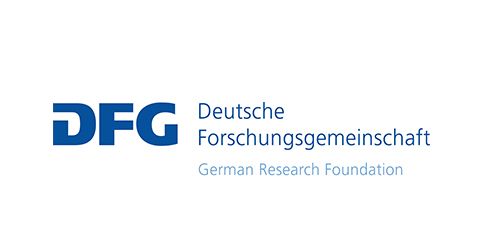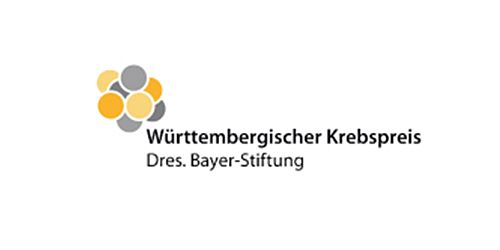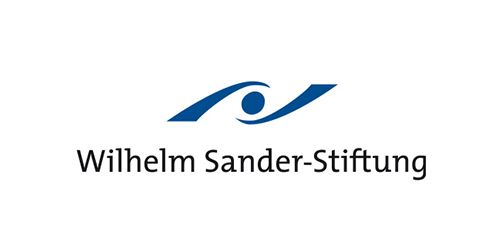-
A COVID-19 peptide vaccine for the induction of SARS-CoV-2 T cell immunity
Jonas S. Heitmann, Tatjana Bilich, Claudia Tandler, Annika Nelde, Yacine Maringer, Maddalena Marconato, Julia Reusch, Simon Jäger, Monika Denk, Marion Richter, Leonard Anton, Lisa Marie Weber, Malte Roerden, Jens Bauer, Jonas Rieth, Marcel Wacker, Sebastian Hörber, Andreas Peter, Christoph Meisner, Imma Fischer, Markus W. Löffler, Julia Karbach, Elke Jäger, Reinhild Klein, Hans-Georg Rammensee, Helmut R. Salih & Juliane S. Walz
-
Immunopeptidomics-guided warehouse design for peptide-based immunotherapy in chronic lymphocytic leukemia
Nelde A, Maringer Y, Bilich T, Salih HR, Roerden M, Heitmann JS, Marcu A, Bauer J, Neidert MC, Denzlinger C, Illerhaus G, Aulitzky WE, Rammensee HGR, Walz JS
-
Pre-existing and post-COVID-19 immune responses to SARS-CoV-2 in cancer patients
Bilich T, Roerden M, Maringer Y, Nelde A, Heitmann JS, Dubbelaar MS, Peter A, Hörber S, Bauer J, Rieth J, Wacker M, Berner F, Flatz L, Held S, Brossart P, Märklin M, Wagner P, Erne E, Klein R, Rammensee HGR, Salih HR, Walz JS
-
Differential T cell and antibody kinetics delineate SARS-CoV-2 peptides mediating long-term immune response after COVID-19
Bilich T, Nelde A, Heitmann JS, Maringer Y, Roerden M, Bauer J, Rieth J, Wacker M, Peter A, Horber S, Rachfalski D, Märklin M, Stevanovic S, Rammensee HG, Salih H, Walz JS
-
SARS-CoV-2-derived peptides define heterologous and COVID-19-induced T-cell recognition
Nelde A, Bilich T, Heitmann JS, Maringer Y, Salih HR, Roerden M, Lübke M, Bauer J, Rieth J, Wacker M, Peter A, Hörber S, Traenkle B, Kaiser PD, Rothbauer U, Becker M, Junker D, Krause G, Strengert S, Schneiderhan-Marra N, Templin MF, Joos TO, Kowalewski DJ, Stos-Zweifel V, Fehr M, Rabsteyn A, Mirakaj V, Karbach J, Jäger E, Graf M, Gruber LC, Rachfalski D, Preuß B, Hagelstein I, Märklin M, Bakchoul T, Gouttefangeas C, Kohlbacher O, Klein R, Stevanović S, Rammensee HG, Walz JS
-
Mass spectrometry-based identification of a B-cell maturation antigen-derived T-cell epitope for antigen-specific immunotherapy of multiple myeloma
Bilich T, Nelde A, Bauer J, Walz S, Roerden M, Salih HR, Weisel K, Besemer B, Marcu A, Lübke M, Schuhmacher J, Neidert MC, Rammensee HG, Stevanović S, Walz JS
-
The HLA ligandome landscape of chronic myeloid leukemia delineates novel T-cell epitopes for immunotherapy
Bilich T, Nelde A, Bichmann L, Roerden M, Salih HR, Kowalewski DJ, Schuster H, Tsou CC, Marcu A, Neidert MC, Lübke M, Rieth J, Schemionek M, Brümmendorf TH, Vucinic V, Niederwieser D, Bauer J, Märklin M, Peper JK, Klein R, Kohlbacher O, Kanz L, Rammensee HG, Stevanović S, Walz JS
-
Carfilzomib alters the HLA-presented peptidome of myeloma cells and impairs presentation of peptides with aromatic C-termini
Kowalewski DJ, Walz S, Backert L, Schuster H, Kohlbacher O, Weisel K, Rittig SM, Kanz L, Salih HR, Rammensee HG, Stevanović S, and Stickel JS
-
The antigenic landscape of multiple myeloma: mass spectrometry (re)defines targets for T-cell based immunotherapy
Walz S, Stickel JS, Kowalewski DJ, Schuster H, Weisel K, Backert L, Kahn S, Nelde A, Stroh T, Handel M, Kohlbacher O, Kanz L, Salih HR, Rammensee HG, Stevanović S
-
HLA ligandome analysis identifies the underlying specificities of spontaneous anti-leukemia immune responses in CLL
Kowalewski DJ, Schuster H, Backert L, Berlin C, Kahn S, Kanz L, Salih HR, Rammensee HG, Stevanović S, Stickel JS
-
Mapping the HLA ligandome landscape of acute myeloid leukemia: a targeted approach toward peptide-based immunotherapy.
Berlin C, Kowalewski DJ, Schuster H, Mirza N, Walz S, Handel M, Schmid-Horch B, Salih HR, Kanz L, Rammensee HG, Stevanović S, Stickel JS

